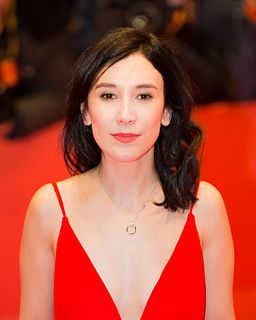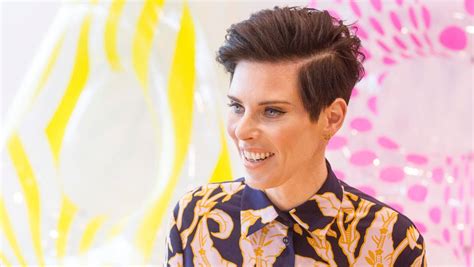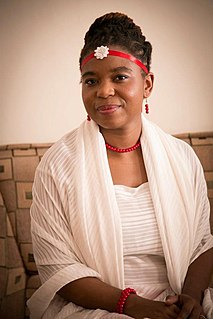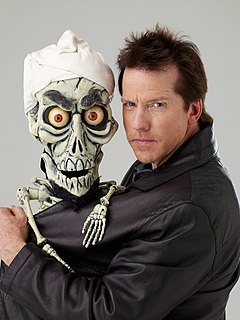A Quote by Jeffrey Eugenides
Basically you come up with the fictional idea and you start writing that story, but then in order to write it and to make it seem real, you sometimes put your own memories in. Even if it's a character that's very different from you.
Related Quotes
Writing fiction lets you be a little more emotional and unguarded, a little freer. Writing fictional characters is also really different from writing about real people. In nonfiction, you can only say so much about the people you interact with. After all, they're actual people, their version of their story trumps yours. In a novel, you can build a character, using certain parts or impressions of someone you know, and guessing or inventing others, without having to worry that your guesses or memories or inventions are wrong.
When you are writing, you have to love all your characters. If you're writing something from a minor character's point of view, you really need to stop and say the purpose of this character isn't to be somebody's sidekick or to come in and put the horse in the stable. The purpose of this character is you're getting a little window into that character's life and that character's day. You have to write them as if they're not a minor character, because they do have their own things going on.
It's funny - for a long time, I didn't know I was writing a book. I was writing stories. For me, each story took so long and took so much out of me, that when I finished it, I was like, Oh my gosh, I feel like I've poured everything from myself into this, and then I'd get depressed for a week. And then once I was ready to write a new story, I would want to write about something that was completely different, so I would search for a totally different character with a different set of circumstances.
There are times when we in Little Dragon write from scratch together, but everyone has their own lives, so it just seems to make sense when everyone starts an idea on their own and we sort of meet somewhere along the way. I'm at the studio all the time because I live there, but the guys will have different schedules. It's easier to start an idea with your own thoughts, rather than having to compromise from the start.
The Jemaine [Clement] and Taika works is a very long and slow machine - we put an idea in one end, and it takes about six years to come out the other end. And sometimes it doesn't even come out. And sometimes it comes out as a different idea. So we've out the idea of We're Wolves into the machine, and it's now slowly going through the sausage maker.
I couldn't have articulated this process at the time; I just sort of did it instinctually. But now when I talk about this with my students all the time, it's one of the first things I address in memoir classes - that you have to put it all in because you're writing your way into the ending of your own story. Even if you think you know what the story is, you don't until you write it. If you start leaving things out you could leave out vital organs and not know it.
When you get an idea, so many things come in that one moment. You could write the sound of that idea, or the sound of the room it's in. You could write the clothes the character is wearing, what they're saying, how they move, what they look like. Instead of making up, you're actually catching an idea, for a story, characters, place, and mood - all the stuff that comes. When you put a sound to something and it's wrong, it's so obvious. When it's right, the whole is greater than the sum of the parts. That's a magical thing that can happen in cinema.
A dream inspiring a story is different than placing a description of a dream in a story. When you describe a character's dream, it has to be sharper than reality in some way, and more meaningful. It has to somehow speak to plot, character, and all the rest. If you're writing something fantastical, it can be a really deadly choice because your story already has elements that can seem dreamlike.
I'll come up with an idea for a character, and I'll write some jokes and make sure that that character is going to have some legs to it - that it's really going to work. If I can come up with jokes and material that I think will work, then I make a cheap version of the doll. Achmed started out just being this little plastic toy from the store.







































